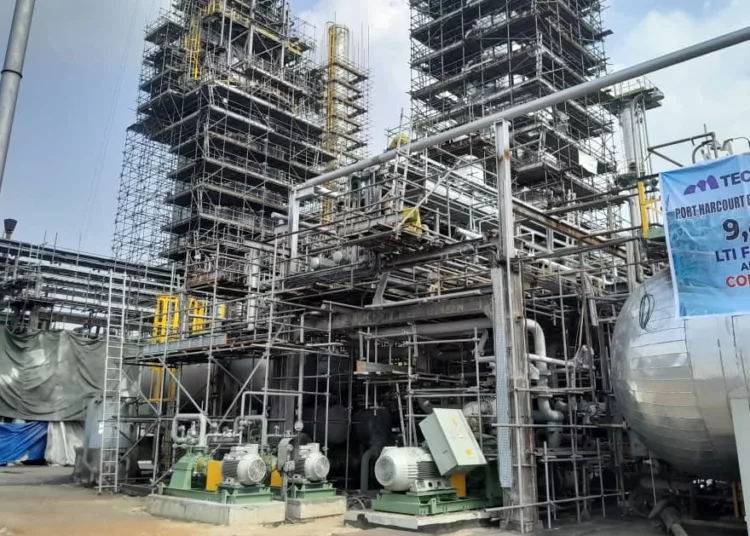Port Harcourt Refinery Commences Fuel Production After Years of Delay

After many years of mounting anticipation and numerous postponements, the Nigerian National Petroleum Company Limited (NNPC) has officially announced the commencement of fuel production at the Port Harcourt Refinery.
NNPC spokesperson, Olufemi Soneye, confirmed the development in a statement to journalists on Tuesday, adding that truck loading operations had also commenced.
“Port Harcourt Refinery begins production. Truck loading starts today, Tuesday,” Soneye stated.
In a post shared on X, the NNPC declared: “NNPC Ltd delivers Port Harcourt Refinery as plant begins truckout of products today, Tuesday, 26th November 2024, at 1.45 pm. Watch the commissioning and trucking out event LIVE.”
The refinery, starting with an initial production capacity of 60,000 barrels per day, is set to supply Premium Motor Spirit (PMS), diesel, and other refined products to the Nigerian market.
The Port Harcourt Refinery becomes Nigeria’s second operational refinery producing petrol, following the Dangote Refinery’s commencement of PMS production in September.
The facility, located in the oil-rich Niger Delta, is one of three refineries owned by the Federal Government and managed by the NNPC.
This development brings renewed hope to Nigerians, who anticipate a potential reduction in fuel costs as the country increases domestic refining capacity and reduces reliance on imported refined products.
The Port Harcourt Refinery, which began operations in 1965, had become moribund for years before the Nigerian government secured a $1.5 billion loan in March 2021 to rehabilitate and modernise the facility.
Despite the promise of revival, the project faced numerous delays, with completion deadlines missed on seven occasions.
Speaking with Punch, NNPC’s Soneye attributed the setbacks to unforeseen challenges encountered during the refinery’s rehabilitation.
“You may recall that mechanical completion of the PHRC revamp was successfully achieved several months ago, marking a significant milestone in the project,” he explained.
He added, “However, as is common with brownfield projects of this scale and complexity, we encountered unforeseen risks and challenges. These issues have since been resolved, and commissioning activities resumed.”
The commencement of production at the Port Harcourt Refinery signals a pivotal moment for Nigeria’s oil and gas sector.
With investments in modernisation paying off, stakeholders hope that this achievement will catalyse broader energy reforms, offering economic relief and boosting national pride.
The commissioning ceremony and first truckout were met with a mixture of relief and optimism, with many Nigerians eager to see the tangible benefits of the refinery’s operations in their daily lives.







